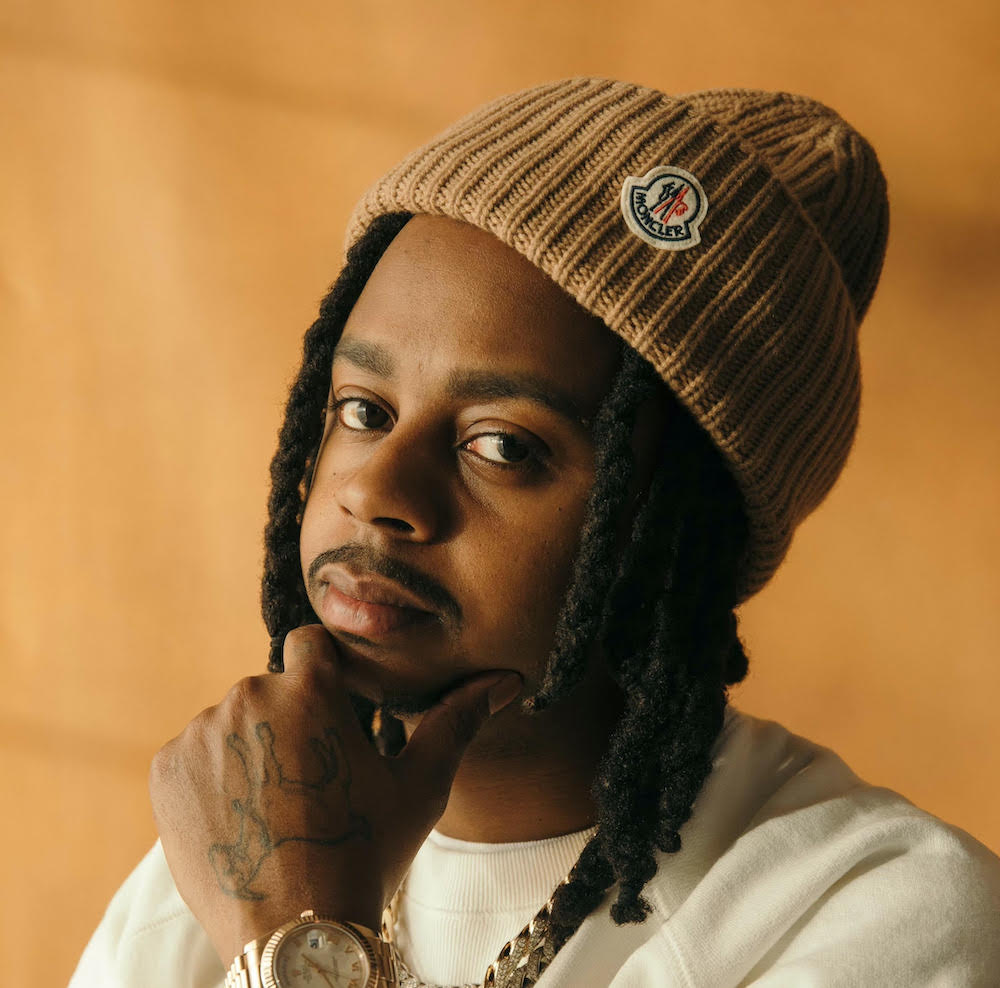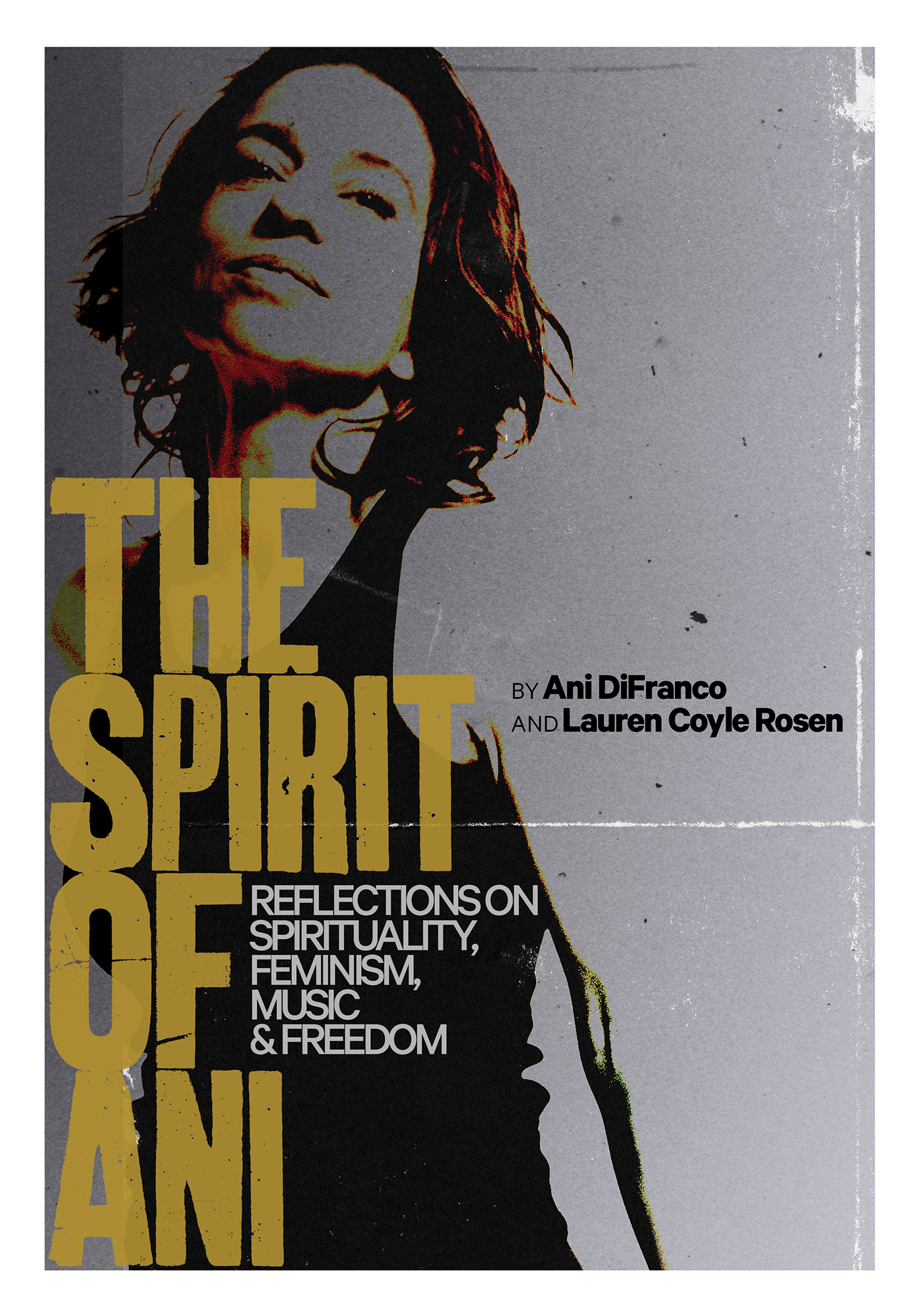It's possible to come out of the Detroit rap underground and to become a big star. We know this because the biggest rap star of all time comes from the Detroit underground. But the circumstances that led to Eminem's stardom are simply not replicable. (If they were, there'd be a million motherfuckers just like him, who cuss like him, who just don't give a fuck like him.) The mainstream rap landscape of the late '90s looks nothing like the mainstream rap landscape of today, and the Detroit underground of the late '90s looks nothing like the Detroit underground of today. So it's worth asking whether a transcendent figure can emerge from the Detroit rap underground today. That's the big question surrounding Babyface Ray, a local hero trying to go big.
If Babyface Ray does become a national rap star, he won't be the only Detroit rapper on that level today. But the Detroit rappers currently enjoying mainstream success aren't the ones who came up through the Michigan underground. Big Sean, a past Babyface Ray collaborator who catches a stray dart on Ray's recent track "Richard Flair," came up through his Kanye West association. 42 Dugg, a longtime Babyface Ray collaborator, is a product of the Detroit underground, and he sounds like one, but he got famous through his Lil Baby association. Danny Brown and Boldy James are critical darlings. Royce Da 5'9" and Elzhi are products of a much older version of the Detroit underground. Sada Baby briefly broke into the top 40 in 2020, thanks to a TikTok trend and a Nicki Minaj remix, but that's been his one big crossover moment thus far. Babyface Ray is chasing something else. He has been for a while.
Babyface Ray, now 31, has been making music for over a decade. He emerged from Detroit's East Side in 2010, and he's deeply rooted into an underground scene that's become its own beast over the years. The scene that's nurtured rappers like Ray and Sada Baby is a chaotic, closed-off ecosystem with its own styles and signifiers. Detroit has a unique sonic template, a cheap-and-hard production style full of programmed handclaps and funky digital basslines. Michigan rap is built around outrageous punchlines and larger-than-life personalities, but those aren't always necessary; Babyface Ray, for instance, does not have a larger-than-life personality or a punchline-heavy style. As with so many other regional rap scenes, Michigan rap is also deeply intertwined with street-level enterprises; Flint's Rio Da Yung OG, one of Michigan's standouts, started serving a five-year drug-trafficking sentence last year.
Michigan's insular, particular style isn't necessarily the sort of thing that can scale up to a mainstream level. A random track like Sada Baby's "Whole Lotta Choppas" might achieve viral-hit status, but that's not necessarily sustainable. Every once in a while, someone from outside the Michigan scene will attempt to tap into what's happening in Detroit and Flint, and the results can be unpredictable. Atlanta's Lil Yachty, for instance, has been making tracks with Michigan rappers for years, a project that culminated in the messily enjoyable 2021 album Michigan Boat Boy. But Michigan Boat Boy doesn't have hits. Detroit underground greats like FMB DZ or Bandgang Lonnie Bands or BabyTron have tons of talent, but thus far, they don't really have hits, either. Babyface Ray seems to really want to make hits.
Babyface Ray has been a key figure in the Michigan rap underground since the current version of that underground started to take shape. He's not a flashy rapper, but he does effective work as a sort of self-assured sleepy-eyed street-rap everyman. Ray's delivery is mellow but insistent. It implies menace, but it never screams it. Ray tends to sound effortless, finding the pocket of a beat and using it to speak softly. There's something calming about the combination of Ray's delivery and the chaotic beats of Detroit.
For a couple of years, Ray has been talking about how he's trying to take Detroit rap to another level. He's been doing his best to make that work, but he seems to know that it won't necessarily be a smooth transition. Last year, Ray released his Unfuckwithable EP, a clear attempt to find a bigger audience. But the video for "Gallery Dept," a strong collaboration with fellow Detroit rapper Veeze, shows how uncomfortable that might be. In the clip, hoity-toity white people file through an art museum with guns mounted on walls instead of paintings. That's a clear visual metaphor for selling insular street-music to people like me -- interested parties who don't have any experience with the situations that Babyface Ray describes. The song also has Ray muttering that he still hasn't met Drake.
On Friday, Babyface Ray released FACE, his big swing of an album. It's a solid double, but it loses some of the distinct flavor of Ray's past music. On the album, Ray walks the line between Michigan styles and the sound of mainstream rap, which is to say the sound of Atlanta rap. The production on FACE switches between splatting Detroit beats and more monolithic 808 Mafia fare. It's a long album and a thoughtful one; the opening track ends with Ray's father praying for his well-being.
Ray has clearly put real thought into how he wants to represent Detroit on a larger level. FACE has collaborations with fellow Detroit stars like 42 Dugg and Icewear Vezzo, and Ray has real chemistry with those guys. He has much less chemistry with big mainstream names like Pusha T and Wiz Khalifa, who sound like they're on cruise control here. On "Blood, Sweat & Tears," Ray teams up with G Herbo, the young Chicago veteran whose combination of local love and national appeal might work as a model for Ray. But the song itself is a bit too sleepy and generic, and it never catches fire. For the most part, FACE is a solid mainstream rap record, but its most exciting moments are the ones where Ray stops trying to fill a mainstream-rap hole and makes something specific and strange instead.
Babyface Ray's songs have a tendency to sneak up on you, and FACE feels like a grower. Right now, though, my favorite song on the album is the weirdest one -- the one where two very different strains of rap music combine into something new. On "Overtime," Ray teams up with Yung Lean, the depressive Swedish cult figure. The tracks' beat comes from Gud, a Swedish producer from Yung Lean's Sad Boys crew, and from Detroit beatmaker Carlo Anthony. The track feels like an ideal fusion of Yung Lean's dark, gurgling melody and the ramshackle sonic grammar of Michigan rap. Yung Lean croons an echo-damaged hook and sounds like he's stuck deep in a Xan hole. Ray starts rapping just as the beat kicks in, and everything snaps into focus when he arrives. It's an unlikely combination, and it works -- partly because these two flavors make sense together and partly because it's just something new.
"Overtime" isn't a masterpiece or anything, but it's an intriguing new wrinkle, and it's the kind of thing that can only happen when a regional rapper looks way outside his comfort zone. To me, that's a whole lot more exciting than the serviceable, slightly altered Atlanta trap that makes up a good chunk of FACE. It's what I want from a record like FACE -- two weird sounds, sounding weird together. As Babyface Ray expands -- as Detroit rap itself expands -- I hope that weirdness can remain intact.
FURIOUS FIVE
1. Peezy - "Common Wealth"
That chopped-up horn loop fits the Detroit style so well, and Peezy sounds so casual over it. "Dictionary might run outta words 'fore I run outta bread."
2. NBA YoungBoy - "No Switch"
The thing that makes YoungBoy so charismatic is the same thing that makes him so troubling. This guy clearly has problems, but maybe you can't attack a track this recklessly if your life is in order.
3. Papoose - "Thought I Was Gonna Stop (Remix)" (Feat. 2 Chainz, Remy Ma, Busta Rhymes, & Lil Wayne)
I have strong memories of the moment when Papoose attempted to promote himself as the single corniest of the would-be New York rap saviors in the mid-'00s, so it's wild that he's somehow still relevant. But if Papoose can round up a bunch of larger-than-life veterans for a goofy, fun posse cut like this, I'm not going to argue with it.
4. NLE Choppa - "Shotta Flow 6"
I have no idea where NLE Choppa's career is going to go. He always seems like he's right there, about to break through on some other level, but then he says or does some weird shit, and the momentum dies. Whenever he wants, though, Choppa locks in with the same relentless energy that made him famous in the first place. The "Shotta Flow" franchise hasn't fallen off yet.
5. BlocBoy JB - "Smoke" (Feat. EST Gee)
I need EST Gee to rap on more Tay Keith beats.
IT WAS ALL GOOD JUST A WEEK AGO
Fuck him but this gon end up being the intro for some classic Baltimore rap shit https://t.co/3gI1SCjIZB
— Lawrence Burney (@TrueLaurels) February 2, 2022






